Qin Shi Huang is famous for being the ruler responsible for the unification of China. He took the title of the first emperor of Qin dynasty and ruled China from 220 to 210 BC. Huang brought many ground breaking reforms and many famous structures were built during his reign. Here are 10 interesting facts about this great emperor of China.
#1 HE BECAME KING OF QIN WHEN HE WAS ONLY 13
Qin Shi Huang was born Ying Zheng in 259 BC. His mother was Zhao Ji. Before she married Zheng’s father Prince Yiren, she was a concubine of the merchant Lu Buwei. Zheng’s father Yiren became King Zhuangxiang of Qin, which was one of the seven major states in the Warring States Period of Chinese history. He died only after three years of reign and Ying Zheng succeeded him as king when he was only 13 years old.
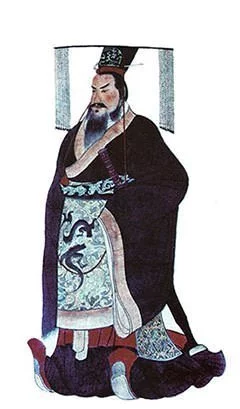
#2 THE THEORY THAT HE WAS AN ILLEGITIMATE CHILD MIGHT NOT BE TRUE
It was widely believed throughout China that Zheng’s mother Zhao Ji was already pregnant by Lu Buwei when she married Zheng’s father Yiren. However most modern historians disregard this theory and believe that it was propagated by Chinese scholars to defame Qin Shi Huang by not only calling him illegitimate but also making him son of a merchant, the lowest of all social classes according to later Confucian society.
#3 HE WAS RESPONSIBLE FOR THE UNIFICATION OF CHINA
In 230 BC, Zheng started his campaign to conquer the remaining six kingdoms in China. The weakest kingdom, Han, was conquered in the same year. Zhao fell in 228 BC, Yan in 226 BC, Wei in 225 BC, the powerful Chu in 223 BC and Qi in 221 BC. Thus is 221 BC, for the first time in history, China became a unified centralized state. It took Zheng less than 10 years to become the first emperor of a unified China.
#4 QIN SHI HUANGDI MEANS THE FIRST EMPEROR OF QIN
After conquering the other six kingdoms, Zheng declared himself “Qin Shi Huang”. Qin stands for “of Qin”; Shi means “first”; and Huangdi was a new term which meant “emperor”. Qin Shi Huangdi hence translates to “First Emperor of Qin”. Qin Dynasty became the first imperial dynasty of China. The title emperor (huangdi) would continue to be borne by Chinese rulers for the next two millennia.
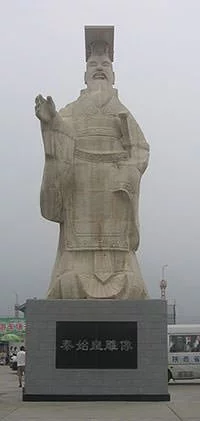
#5 THE CHINESE SCRIPT WAS UNIFIED UNDER HIS RULE
To avoid political chaos, Huang abolished the old system and divided his empire into 36 Jun (districts). All the officials were appointed based on merit rather than on hereditary rights with important positions going to military officers who distinguished themselves in battles. He unified the code of law and standardized the Chinese units of measurement and currency. Most significantly, Huang unified the Chinese script by bringing a new, simplified, standardized script.
#6 A UNIFIED GREAT WALL WAS CONSTRUCTED DURING HIS REIGN
The Qin Dynasty was constantly involved in battle against the Xiongnu tribes in the north and north-west. To guard the northern border, Huang ordered the construction of an enormous defensive wall which connected various state walls built previously. Although little of this wall remains today, it was the precursor to the Great Wall of China. It is estimated that hundreds of thousands, maybe even over a million people died during the construction of this famous wall.
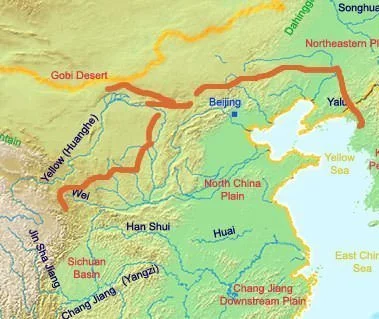
#7 He ORDERED THE CONSTRUCTION OF THE LINGQU CANAL
In order to attack the Baiyue tribes in the south, Huang ordered the construction of the Lingqu Canal. Along with the Great Wall and the Sichuan Dujiangyan Irrigation System, Lingqu Canal is considered one of the three great feats of Ancient Chinese engineering. Designed by Shi Lu, it is the oldest contour canal in the world and a UNESCO World Heritage Site.

#8 HE WAS OBSESSED WITH FINDING THE ELIXIR OF LIFE
Qin Shi Huang was obsessed with acquiring immortality and in his later life he desperately sought the fabled elixir of life, a mythical potion which when drunk grants the drinker eternal life or youth. Also his alchemists and court physicians made mercury pills which were supposed to make him immortal. Qin Shi Huang died on September 10, 210 BC, supposedly due to mercury poisoning after consuming these pills. He was on one of his tours of Eastern China.
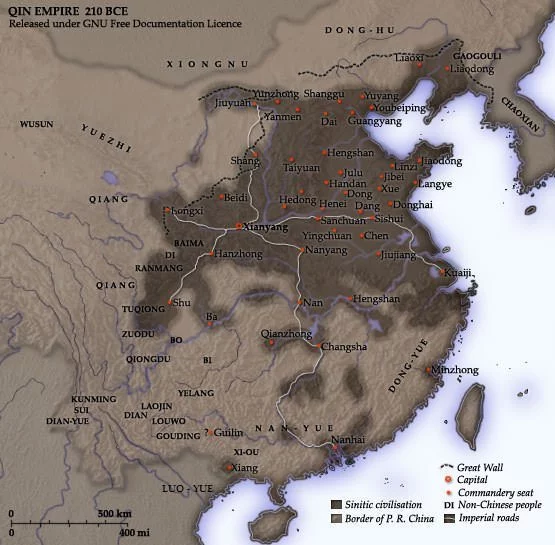
#9 He WAS UNPOPULAR AND CONSIDERED INHUMANE THROUGH MUCH OF CHINA’S HISTORY
During his reign Qin Shi Huang ordered most existing books to be burned. It is also said that he had some 460 scholars killed. Due to this and because he ruled with an iron hand, Confucian scholars undervalued his achievements after his death and portrayed him as a brutal tyrant. This made Huang an unpopular figure for many centuries. This started to change in the late nineteenth century and today he is considered a far sighted ruler and acclaimed for his steps toward unification and standardization.
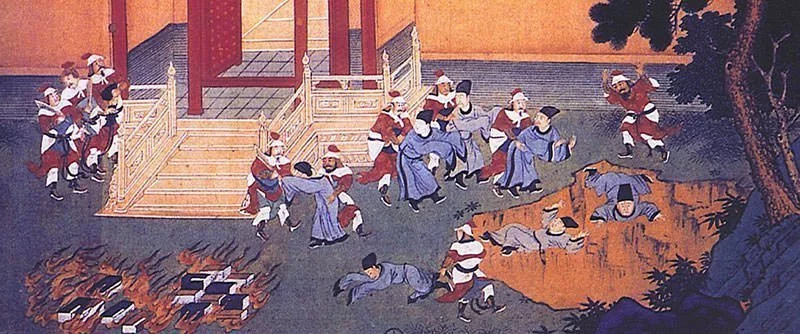
#10 HiS TOMB IS PROTECTED BY THE TERRACOTTA ARMY
Soon after he ascended the throne Qin Shi Huang started the work of the famous mausoleum which was to enclose his burial chamber. It took 700,000 men and 38 years to construct this mausoleum which was larger than any city of the world at that time. Surrounding his tomb is the famous Terracotta Army of around 6,000 life sized Terracotta Warriors, whose purpose was to protect the Emperor in the afterlife from evil spirits. Also among the army are chariots and 40,000 real bronze weapons.

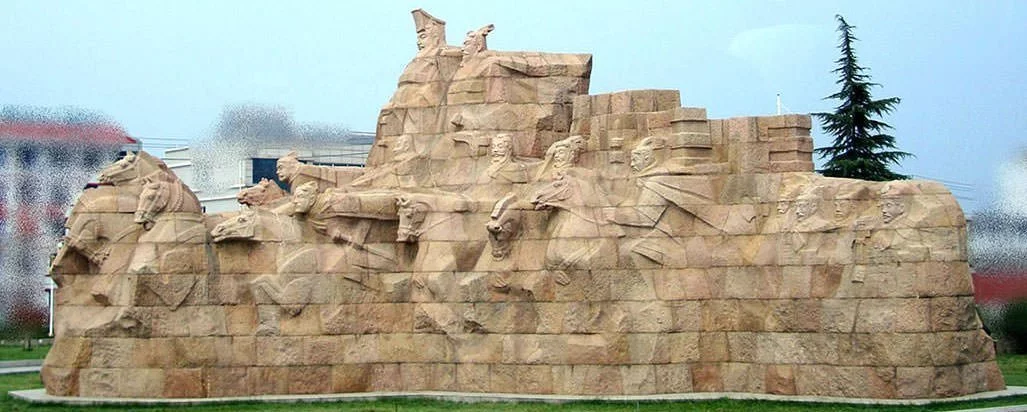
cool
terracotta warriors are cool
can you tell me your middle name and last name I need that for my citation to be valid
The article is written by Anirudh Rawat.
Why